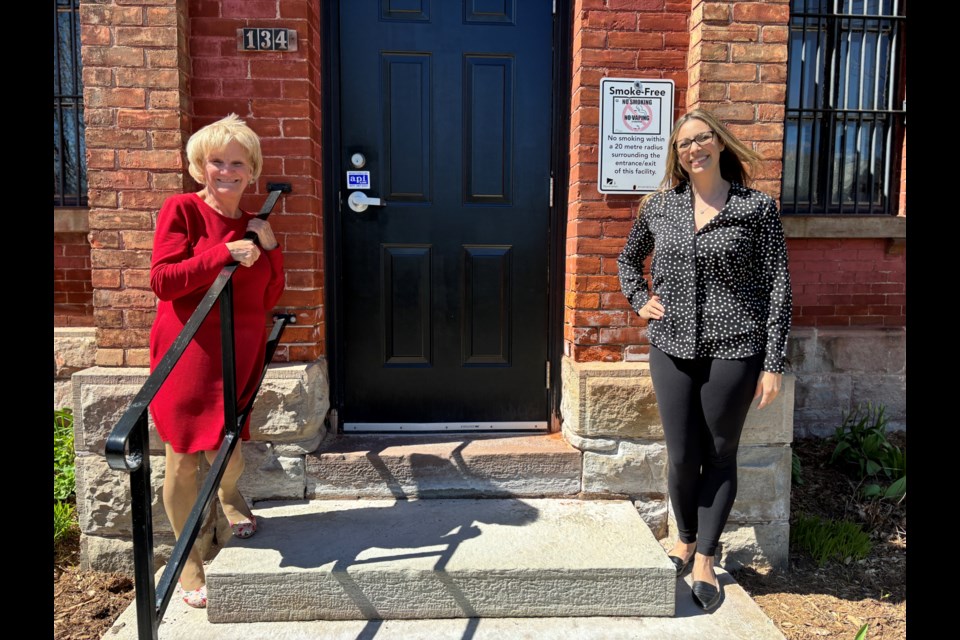A group dedicated to preserving the history of Newmarket is celebrating a significant anniversary this year as it continues to preserve stories for future generations.
The Newmarket Historical Society will celebrate 50 years in the community with a special members-only event on May 15.
“It is an amazing achievement, especially when you think about the fact that the Newmarket Historical Society is entirely powered by volunteers,” said Erin Cerenzia, president of the Newmarket Historical Society. “We do not have staff. These are all people who have made a significant commitment to donate countless hours of their time to preserving Newmarket’s history and bringing historical programming and events to the community to maintain, grow, and digitize our archives.”
In 1973, Terry Carter, editor of the Newmarket Era, and Bob Holden, a Newmarket high school teacher, began exploring the idea of a historical society with support from Newmarket's chief librarian Lisa Lo. At the time, it was called the Newmarket Historical Committee. One year later, the first meeting was held with 11 people in attendance.
Today, the organization provides free monthly programs and events on local history, creating and publishing historical papers, maintaining and digitizing an extensive archive with thousands of records, and supporting critical research projects for individuals and institutions. It has about 150 people in attendance at its regular meetings.
“You have to have a history to have a future, I think,” said Jackie Playter, past president. “Some places don’t celebrate their history so much, but Newmarket is a very old town. It started in the 1800s and we have a rich history. I think anybody that lives here should know a little bit about it.”
The society serves the community as a registered charity with a mission of preserving Newmarket’s history for future generations. Cerenzia said a significant moment for the society was when the First World War interactive trench exhibit in 2018.
The trench was created to mark the centennial of the First World War in 2014. It transports its visitors back to the long, narrow ditches where infantry soldiers lived, day and night, on the Western Front during the 1914 to 1918 war.
“It was an amazing exhibit that through the power of volunteers, we built a replica trench,” said Cerenzia. “It was to commemorate the centenary of the First World War but because we had such interest from the community, and it was so popular, we had 5,000 visitors in our first year alone, we decided to bring it back for three more years, building on to it each year because Newmarket spoke to us and said this is something we’re interested in and want to learn more about.”
They expanded on the trench by incorporating a subway and victory arch. It is now permanently located at the Georgina Military Museum at 26061 Woodbine Ave., in Keswick.
The society now stores a collection of treasures such as an old-fashioned desk, a collection of dolls, and vintage boiled egg scissors at the Elman W. Campbell Museum on Main Street.
“You need to preserve your history,” said Playter. “Children need to know why the streets are named Timothy Street or Yonge Street. Where do those names come from? You can find out with your historical society. If we didn’t have a historical society and didn’t preserve our history, who would know Yonge Street is named after George Yonge, or who would know Timothy Street is named after Timothy Rogers.”
The archives digitizing project currently contains more than 2,500 images of Newmarket, official documents of the town dating back to 1805, one of the most intact collections of the Newmarket Era along with early maps, books, family records, and histories of Newmarket. A manual will be created to guide historical society volunteers to continue maintenance of the archives and allow them to digitize any new material added to the archives in the future.
“Newmarket has such a rich and robust history,” said Cerenzia. “There are still new discoveries we make and uncover. I really believe it is important to reflect, honour, and respect those who came before us and build upon that for the future.”
— With files from Debora Kelly and Joseph Quigley




